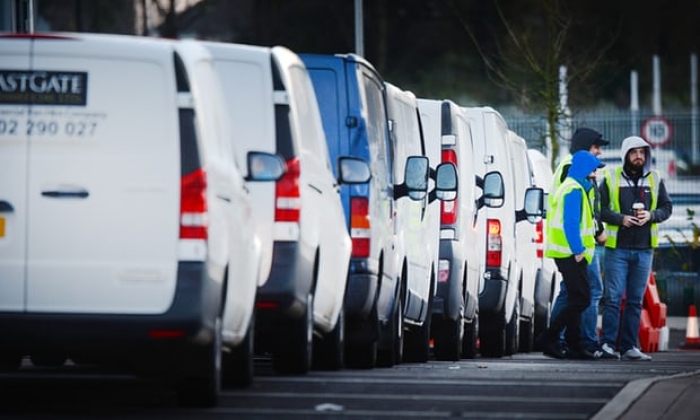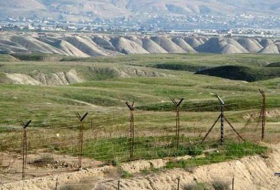The relatively modern post-Thanksgiving tradition has been adopted from the US, where nearly 70% of Americans – 164 million people – plan to shop this weekend, which spans Black Friday through to Cyber Monday, according to the National Retail Federation.
In the UK, Black Friday is mostly an online event, although retailers also saw queues this morning at shopping centres across the country. 81% of Black Friday purchases include a home delivery, with Amazon expected to take the majority of sales. A diesel truck will leave an Amazon fulfilment centre every 93 seconds at peak times, according to Staveley Head, which insures trucks and vans for retailers.
Stephen Holgate, professor of immunopharmacology at the Medical Research Council, said online shopping contributed to the air pollution crisis. “Vans are key contributors to diesel pollution. In our RCP [Royal College of Physicians] report we show van use continues to increase. Vans are now up to 10-12% of vehicles in our cities. They, along with small goods transport vehicles, are almost all diesel and make up about 12% of diesel emissions in urban settings.
“Supermarket and internet shopping really drives this and unlike people going to the shops themselves, the vans penetrate into quiet residential roads where vulnerable groups like children and the elderly live in large numbers. These vans sit and idle for hours in the road as they wait to deliver more packages, and this is a huge problem.”
He said the chancellor had missed an opportunity not to tackle “white van man” in the budget. Vans were explicitly left out of increases in tax on new diesel cars.
The weekend also marks the start of the Christmas shopping season, during which air pollution spikes are recorded around shopping centres, according to Gary Fuller of King’s College London. “Any increase in traffic, and especially diesel traffic on our roads, will not be helpful for air pollution,” he said.
Brian Kay, director of Green Business Watch, said reports still suggested online shopping impacted less on the environment than individuals driving to the shops. “What is important is that this online shopping is done in an as environmentally friendly way as possible, so, for example, those 82,000 diesel vehicles should be electric,” he said.
Some retailers are not taking part in Black Friday. In Seattle, outdoor clothing retailer REI is giving its 12,000 employees a paid holiday and will not process any online orders. Instead it is encouraging customers to spend time outside with family and friends.
Greenpeace is launching an alternative to what it labels the “hyper-consumerism” associated with Black Friday. It has organised an international makers festival – called “Make Smthng” – where people around the world are asked to come together to make, upcycle or repair something rather than shop.
“Black Friday has become one of the major peaks of consumerism,” said Chiara Campione, Greenpeace’s global project leader. “This shopping binge also generates greater volumes of waste than ever. This dangerous trend is harming our planet. We buy without thinking for a minute, but the waste we create will sometimes last for centuries.”
Plastic toys and games are expected to be some of the most sought after items over the weekend, according to Euromonitor International. But Roland Geyer, author of the first global analysis of mass produced plastics, said recycling and incineration would not be enough to stem the plastic flow from such consumerism.
“Even if we stay on the current trends of increasing recycling and incineration rates, we will have doubled the amount of plastic waste discarded since 1950 in the next 20 years,” he said.
“The easiest way to reduce plastic waste is to not buy that product made of plastic or packaged in plastic, destined to become rubbish much sooner than we like to think.”
More about: #Black-Friday















































